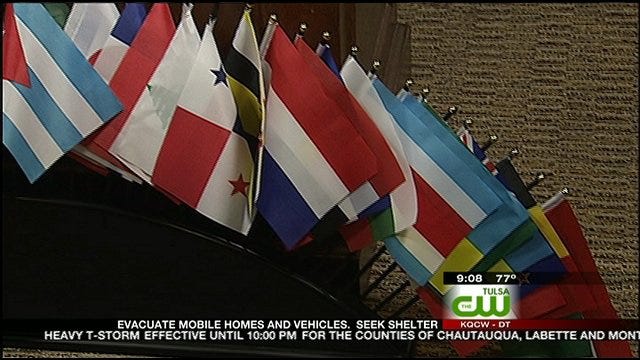Tulsa Conference Hopes To Spur Improvement in Medical Translation
<p style="text-align: justify;"> <div id="_mcePaste" style="text-align: left;">Doctors understanding patients can be the difference in life and death. This group aims to also get Congress speaking the same language.</div> <br><br> <br /><br /> Sunday, April 29th 2012, 9:28 pm
With the growing number of foreign languages in the United States, there's also a higher need for medical interpreters.
When most people think of foreign languages in the U.S., Spanish is the one that first comes to mind.
But medical experts say they actually deal with more than 170 languages.
Making sure doctors and patients are on the same page can be the difference life and death.
A panel of professionals is in Tulsa this week for a special forum to talk about saving lives through language.
They're also collecting signatures on a petition to convince Congress to fund a certification program for medical interpreters.
"They demand that we provide the service, now pay for the service," Marty Conroy of Language Line Services said.
Conroy said there's much more to being a medical interpretor than knowing a foreign language.
He said interpreters must also know and understand medical lingo.
"A family member doesn't know medical terminology, can't explain what a person's going to undergo," Conroy said. "Only a professional can."
So how do Tulsa hospitals handle language barriers?
"We have the ability to do online video sign language interpretation 24/7,"said Kevin Steck of St John's Medical Center.
In Tulsa, more than 40 different foreign languages are commonly used in the hospital.
"We're seeing an increase in Burmese, Korean, Russian, Chinese and Arabic," Steck said.
Medical professionals here say if you can't understand what the patients is going through, you can't treat them properly -- and it can lead to deadly mistakes.
The forum starts tomorrow morning at 8:30 at the Mayo Hotel.
Tulsa Mayor Dewy Bartlett is expected to attend.
More Like This
April 29th, 2012
January 2nd, 2025
September 29th, 2024
September 17th, 2024
Top Headlines
March 12th, 2025
March 12th, 2025











